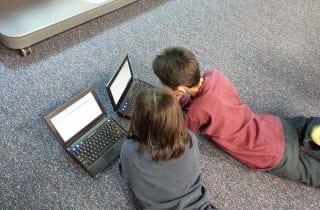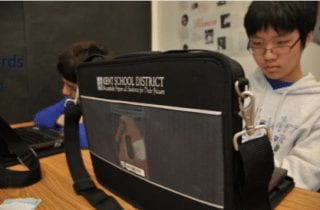Teachers can no longer download any app they want and use it the same day—every piece of instructional technology must be vetted for how it relates to educational goals and checked against software the school already has. More important, though, every piece of technology must adhere to the district’s student data privacy policies.
Presented by Dr. Lori Rapp, Superintendent, Lewisville Independent School District (TX); and Dr. Oskar Scheikl, Superintendent, Rockingham County Public Schools (VA)
Moderated by Linnette Attai, Project Director, CoSN’s Privacy Initiative and the Trusted Learning Environment Program
This edWebinar will present original ideas for taking advantage of Digital Citizenship Week and discuss media balance, cyberbullying, privacy and much more.
Student privacy and school security are growing concerns in schools that can have consequences from negative media attention to losing parent and student trust. Defining and assessing levels of risk in the school is a crucial part of online security and privacy. Although there is no such thing as zero risk, there are measures we can take to significantly reduce risk. Bill Fitzgerald, Director of the Privacy Evaluation Initiative for Common Sense Media, provided simple ways to assess online privacy and security in “Online Security, Privacy, and Risk: How to Avoid Becoming a Headline.”
Stay off the front page of the paper! In this webinar, Common Sense privacy guru Bill Fitzgerald will explore how to define and assess levels of risk in the classroom and at school. Bill will give you tools and simple checks that you can use to make sure that you are using available technology in a way that does not violate student privacy or school security.
How do we guide kids to think critically, have moral sensitivity, and make ethical decisions in digital spaces? How do we help them think not only of themselves, but also about the impact of their actions in the digital world on others? Principles of character education intersect strongly with digital citizenship education.
From text messaging, to social media, to online gaming, Connecting Families encourages and supports rich and relevant community conversations about kids’ digital lives throughout the school year. Connecting Families resources allow you to bring these important conversations to your school, but they take the pressure off of you to be an expert. Common Sense Education has done the research, the prep work, and the field-testing, giving you the best tips and content.
Video can be used to enhance teacher and student engagement, significantly improve learning outcomes, enable 24/7 professional development, and engage and involve parents and the community.
How can a school district educate each and every student to be a safe, responsible, respectful digital citizen?









